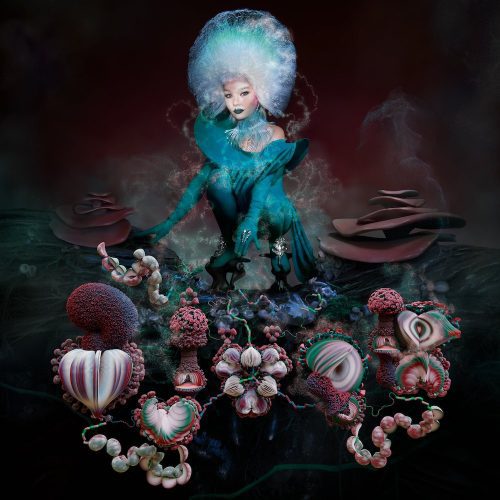At 56, Björk performs another miracle, colluding with the spirits of avant-pop.
If she wasn’t the monumental figure she has become over time, her recent offering would most likely have a confidential impact, at the very least, a niche one. This quest has never wavered and this extraordinary album is further proof of that. Most of Fossora’s instrumental or electronic proposals are among the best crafted of his entire discography, ten solo albums if we don’t count a first handmade opus, released in her early teens.
The mastery of this language built over four decades is total and exemplary. The use of chamber orchestras, choral singing, or electroacoustic lutherie is at the service of poignant and visceral lyricism. As much as the melodic lines are consonant and conform to the idea of a song, the accompaniment is a laboratory where all stylistic limits can be transgressed.
Björk’s success lies in the quality of the links established between different musical genres, communities, and eras, from noise to ancient music. All can cling to her consensual markers, and this is still the case here. Strings, reeds, percussion, choral singing, beatmaking, and other variables serve the embodied melodies and gripping voice of the brilliant soloist and designer.
Fossora is about a poetic diffraction of her present condition as a woman artist, dependent on a very open upbringing by her late mother, to whom she pays homage: Hildur Rúna Hauksdóttir was a feminist activist, an intellectual inclined to nihilism, a mother nevertheless loving and responsible, despite a rather dark world view.
The mother figure, in the real or symbolic sense – including her own, since her children participate in this recording – is prominent in this magnificent work. Back in Iceland where she now lives, Björk speaks of women, of their creations of body and mind, but also of nature and the subtle universe of wild mushrooms, which fascinate her and become here a metaphor of life and hope. In spite of everything.
























